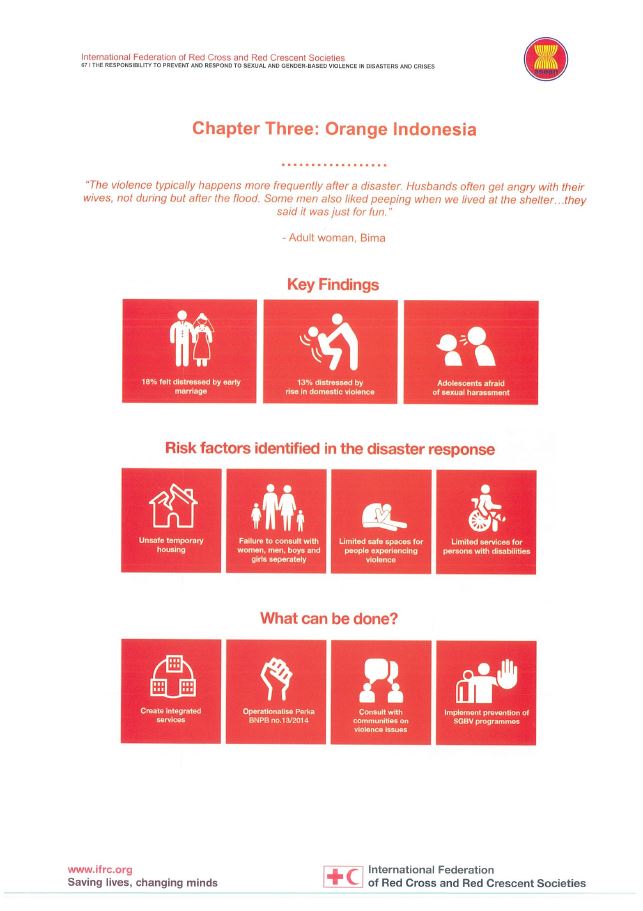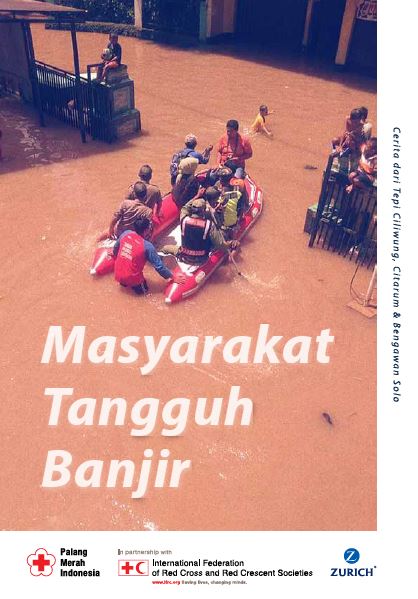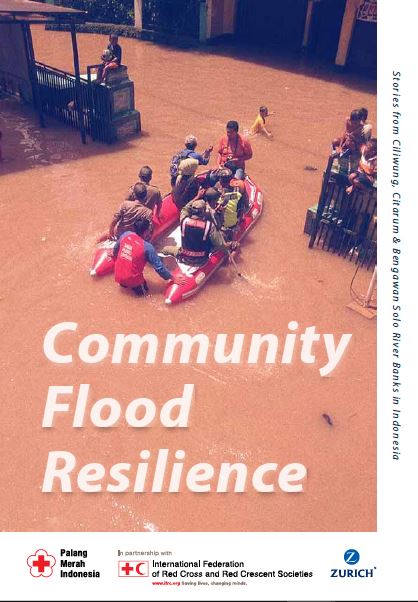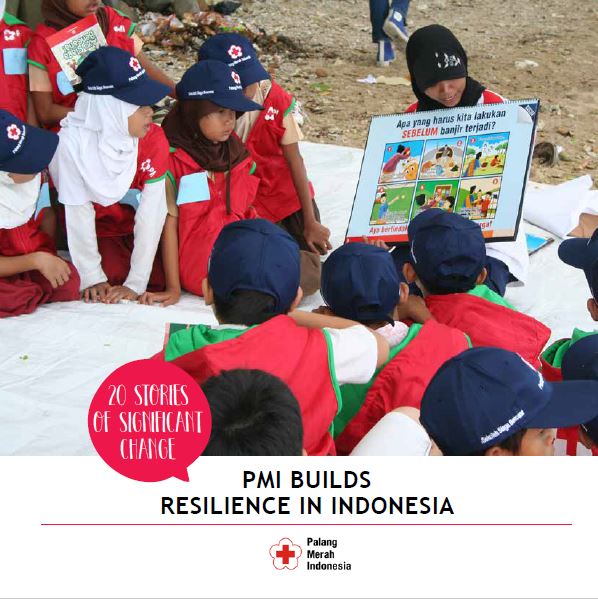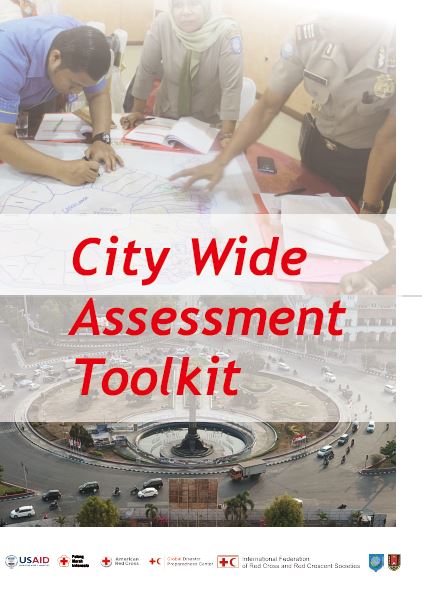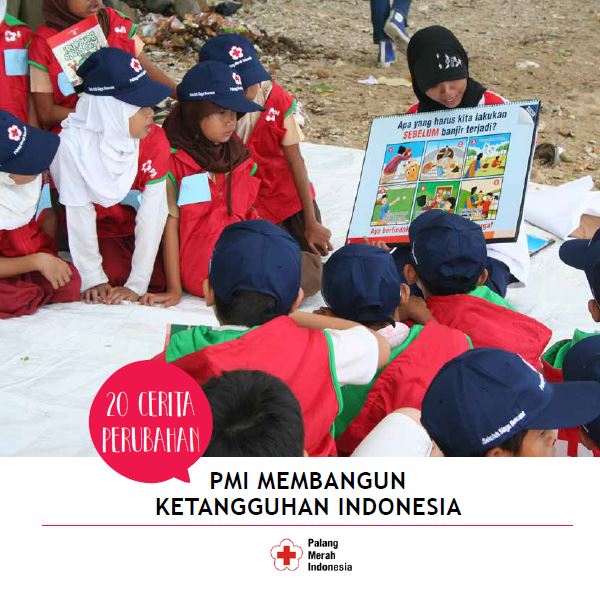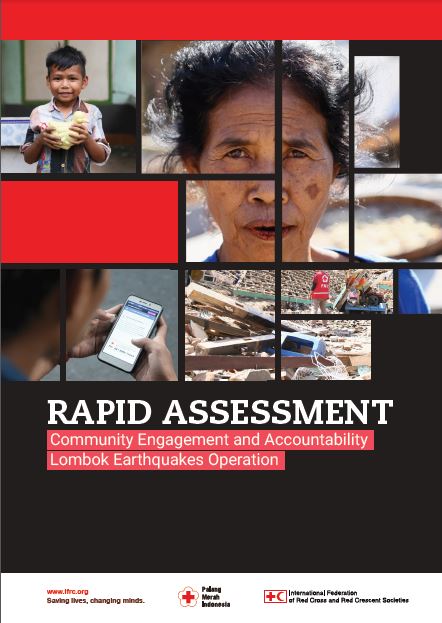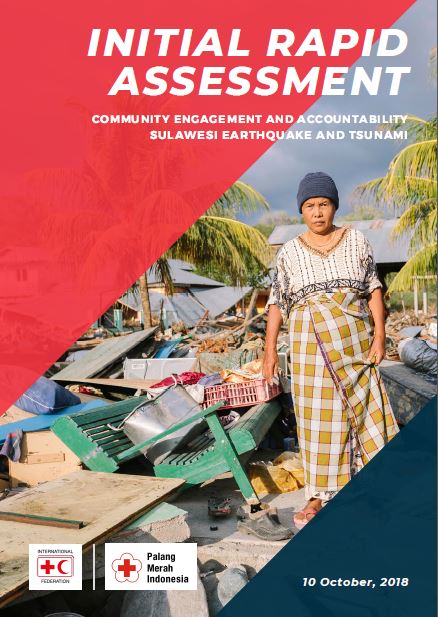Masyarakat Tangguh Banjir – Cerita dari Tepi Ciliwung, Citarum & Bengawan Solo
This document is also available in English language. Click here to download.
![]()
Community Flood Resilience – Stories From Ciliwung, CItarum & Bengawan Solo River Bank in Indonesia
This document is also available in Bahasa Indonesia. Click here to download.
![]()
20 Stories of Significant Change – PMI Builds Resilience in Indonesia
As the largest humanitarian organization in Indonesia, the Indonesian Red Cross (Palang Merah Indonesia/PMI) has been a partner of the government for 70 years. It continues to maintain its neutrality, work to provide humanitarian services in 34 provinces through various programs, such as blood donating, health services, disaster response and character education.
As outlined in our policy points, strategic plans and the PMI operational plan 2014-2019, the PMI upholds the mission of becoming the premier humanitarian organization that provides quality services to the public based on the Fundamental Principles of the International Red Cross and Red Crescent Movement. It also strives to improve the independence of the Red Cross organization through strategic and sustainable partnerships with the government, the private sector, movement partners, communities and other stakeholders at all levels, as well as improving the Red Cross organization’s reputation at the national and international levels.
This document is a compilation of stories on the initiatives and innovation of PMI’s programs and services, which are based on this mission. The services provided were aimed at providing benefits and changes for a better life and environment of the communities in which PMI works. Click here to download the Bahasa Indonesia version.
![]()
20 Cerita Perubahan – PMI Membangun Ketangguhan Indonesia
As the largest humanitarian organization in Indonesia, the Indonesian Red Cross (Palang Merah Indonesia/PMI) has been a partner of the government for 70 years. It continues to maintain its neutrality, work to provide humanitarian services in 34 provinces through various programs, such as blood donating, health services, disaster response and character education.
As outlined in our policy points, strategic plans and the PMI operational plan 2014-2019, the PMI upholds the mission of becoming the premier humanitarian organization that provides quality services to the public based on the Fundamental Principles of the International Red Cross and Red Crescent Movement. It also strives to improve the independence of the Red Cross organization through strategic and sustainable partnerships with the government, the private sector, movement partners, communities and other stakeholders at all levels, as well as improving the Red Cross organization’s reputation at the national and international levels.
This document is a compilation of stories on the initiatives and innovation of PMI’s programs and services, which are based on this mission. The services provided were aimed at providing benefits and changes for a better life and environment of the communities in which PMI works. Click here to download the English version.
![]()
Rapid Assessment: Community Engagement and Accountability – Lombok Earthquakes Operation
On 29 July 2018, a 6.4 magnitude earthquake struck off Lombok in the province of West Nusa Tenggara, Indonesia. A second, larger earthquake of 7.0 magnitude occurred on 5 August 2018, and was followed by thousands of aftershocks (data from Indonesia’s Agency for Meteorology, Climatology, Geophysics – Badan Meteorologi, Klimatologi dan Geofisika). The earthquakes affected 509,600 people across five districts including North Lombok, East Lombok, West Lombok, Central Lombok and Mataram city, with 560 deaths and 7,757 injuries. At least 396,000 people have been displaced in the series of devastating earthquakes. Seventy-five per cent of buildings in North Lombok were damaged or demolished including 577 school buildings (data from National Disaster Management Agency – Badan Nasional Penanggulangan Bencana).
The Indonesian Red Cross Society (known as Palang Merah Indonesia – PMI) conducted a rapid assessment on information, communication and accountability in response to devastating earthquakes on Lombok island, Indonesia. Some 257 people from severely affected communities including North Lombok, East Lombok and West Lombok took part in this assessment, held through focus group discussions and interviews. Information from government institutions and aid agencies also contributed to this report. The key findings include information needs of the affected people, their preferred communication channels, feedback mechanisms, and decision making process in the communities to consider for integration in the programme designs for this response.
![]()


